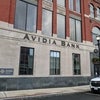Out of Boston's shadow? Worcester charting own economic course
 IMAGE: DREAMSTIME.COM; WORCESTER BUSINESS JOURNAL ILLUSTRATION
IMAGE: DREAMSTIME.COM; WORCESTER BUSINESS JOURNAL ILLUSTRATION
When it comes to the kind of big, splashy headlines that city leaders like to cut out and frame, the last few months have been a bit of a bust for Worcester.
But that doesn't seem to bother Tim Murray, president and CEO of the Worcester Regional Chamber of Commerce. The former lieutenant governor said the big picture is that Worcester's image is on an upward trajectory throughout the state and beyond.
The authors of Boston's controversial bid to host the Olympics have remained cool to the idea of including Worcester in their plans. A possible play to bring the Pawtucket Red Sox to town has gone nowhere. A March report by Boston-based consulting group MassInsight that offers suggestions for the state's innovation economy didn't bother mentioning Worcester, and a round of grants from the Massachusetts Life Sciences Center announced in May didn't include any companies located in the city.
“I think Worcester's image is changing for the positive,” he said. “I think there was oftentimes a stereotype or media-driven narrative, from Boston media and to a lesser extent the national media, that Worcester was this gritty old industrial town. I think what was really lacking in that type of stereotype was that our economy has become incredibly diverse.”
Murray, who helped boost the city's visibility when, as mayor, he campaigned for lieutenant governor in 2006 and served until 2013, said the city's colleges and hospitals complement its manufacturing economy, encouraging the development of new high-tech products.
While Boston grew
Worcester has long had a bit of a chip on its shoulder compared with its much-larger near-neighbor to the east. Starting in the 1970s, Boston grew into a thriving financial center and, later, a technology hub, while Worcester continued to decline from its 19th- and early 20th-century heyday as a manufacturing center.
The 1994 reestablishment of commuter rail service from Worcester to Boston after a two-decade gap was widely seen as a positive step for the city's economy. Yet at the same time, it promoted an image of Worcester as essentially a big suburb — or, at most, a supporting player — for the growing Boston colossus.
Worcester has fought back by consciously trying to develop its own economic engines. One of the most visible of these is the Massachusetts Biomedical Initiatives, which provides space and resources for life sciences companies. Jon Weaver, MBI's chief operating officer, said Worcester's highly educated population and prominent institutions make the city into the anchor of a high-tech corridor that extends to Boston and Cambridge.
He said MBI frequently works with startup founders in MetroWest who are trying to decide whether to set up shop in Worcester or Greater Boston. He said many are put off by the hour-and-a-half commute into Cambridge and $70-a-square-foot real estate prices they find there.
“Then they look at us, and they say 'I can be there in half an hour at a third the price,'” he said.
Weaver said the city's cultural draws are also important to the companies MBI works with. Attractions such as Hanover Theatre, the Crompton Collective boutique and Wormtown Brewery appeal to young innovation-economy workers.
Taking time for people to catch on?
Weaver said there are certainly some startups that prefer a prestigious Cambridge address, and that's fine with MBI since they have no trouble keeping the buildings full as firms cycle through the incubator spaces.
“People that know about [Worcester] are doing very well, and those that don't, well they'll figure it out eventually,” he said.
In fact, even if no Worcester-based companies were part of the latest round of grants from the Massachusetts Life Sciences Center (MLSC), spokesman Angus McQuilken said the city has been a major part of the state's biomedical industry for decades. While there are lots of Boston-area startups vying for funds, he said companies in Worcester are fully as viable and have access to a lot of key resources.
“It has terrific academic institutions where important research is taking place,” he said.
Working together, not apart
Like Weaver, McQuilken said Worcester and Greater Boston both benefit from each other. “There are many companies that will want to be in the innovation center of Boston and Cambridge, but there are many companies that are interested in proximity to those centers but at lower costs,” he said.
McQuilken said the MLSC has provided $139 million in funding in Central Massachusetts, starting with major capital investments at UMass Medical School and WPI. He said the center has also placed many students and recent graduates at Worcester-area businesses through its Internship Challenge program.
Meanwhile, Murray said city officials and business leaders are continuing to push Worcester. That means developing new co-working spaces and business incubators, as well as supporting improved transportation measures.
“I think the good news is the world is getting smaller,” Murray said. “And, quite frankly, the opportunity, as people are getting priced out of Boston and Cambridge, is to find that talent.”
Murray said Worcester also hasn't given up on being part of the Olympics, if they end up in Boston in 2024, such as by using Lake Quinsigamond or the DCU Center for events.
“We're trying to make sure as they're considering this thing that they're aware of what we have to offer, which I think is a lot,” he said.









0 Comments